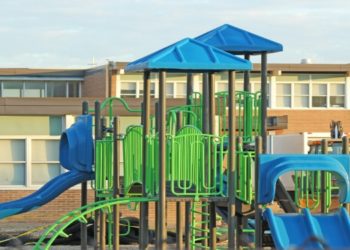Special education teachers work with students who have physical, mental, emotional, or learning disabilities, providing tailored instruction and support. Becoming a special education teacher is a fulfilling and impactful career choice, offering the opportunity to make a difference in the lives of students with diverse needs. If you’re interested in pursuing this rewarding path, there are several steps you’ll need to take, from acquiring the necessary education to developing key skills.
Earn a Bachelor’s Degree
The first formal step toward becoming a special education teacher is earning a bachelor’s degree. While many education degrees provide a foundation in teaching, it’s important to major in special education or a closely related field to gain the specialized knowledge necessary for working with students with disabilities. The course usually includes topics like how children grow and learn, how to understand the way kids think, and methods for teaching students with different disabilities.
Additionally, preparing for certification exams like the Praxis Special Education often involves detailed explanations and rationales for each answer choice, which helps candidates understand the material more deeply and succeed on the test. If you already have a degree in general education or another field, you may need to take additional coursework or enroll in a special education certification program to meet the requirements for this career.
Complete a Student Teaching Program
Gaining hands-on experience through a student teaching program is an essential part of becoming a special education teacher. Most bachelor’s degree programs have a student teaching part where you get to work in a classroom while being guided by an experienced teacher. This experience provides invaluable insights into lesson planning, classroom management, and working with students who have different needs. During your student teaching, you’ll observe experienced educators, assist with classroom activities, and eventually take on teaching responsibilities yourself. This is a great opportunity to build your skills and receive feedback on your teaching style.
Pass State Licensure Exams
After completing your degree and student teaching program, you’ll need to pass a state licensure exam to become a certified special education teacher. The rules for getting a teaching license are different in each state, but most states require you to pass a general teaching exam and a special test focused on special education. These exams typically assess your knowledge of teaching methods, child development, and disability law, as well as your ability to create and implement individualized education plans (IEPs). It’s important to check the specific requirements for the state where you plan to teach, as some states may have additional exams or continuing education requirements.
Consider Earning a Master’s Degree
While not always required, earning a master’s degree in special education can provide additional expertise and improve your job prospects. In some states or school districts, you may need a master’s degree to get a teaching license, while others offer higher pay if you continue your education. A master’s degree in special education helps you understand different disabilities, improve teaching methods, and use classroom technology effectively. Plus, it can open the door to leadership roles, like becoming a special education coordinator or even taking on administrative positions in schools or districts.
Develop Key Skills
Beyond formal education and getting licensed, being a good special education teacher also means building important personal and professional skills. These include:
- Patience and empathy: Working with students who have disabilities can be challenging at times, requiring a deep well of patience and understanding.
- Adaptability: Every student learns differently, and special education teachers must be flexible in their teaching approaches to accommodate various learning styles.
- Collaboration: Special education teachers work closely with parents, administrators, and other teachers to support students’ learning. Being able to collaborate well with others is key to doing well in this role.
- Communication: Teachers must be able to clearly communicate with students, parents, and colleagues, both verbally and in writing.
- Problem-solving: Finding solutions to challenges is a key part of the job, whether it’s modifying lesson plans, addressing behavioral issues, or ensuring that students receive appropriate support services.
Success as a special education teacher goes beyond formal education, requiring patience, adaptability, collaboration, communication, and problem-solving skills to effectively support and empower students with disabilities.
Pursue Continuing Education and Professional Development
Once you’ve begun your career as a special education teacher, continuing education is crucial for staying up-to-date with best practices, legal requirements, and new technologies. Many states require teachers to complete professional development courses to maintain their licensure, and some school districts offer workshops or training sessions on topics like assistive technology or behavioral interventions. Joining professional groups like the Council for Exceptional Children (CEC) gives you access to helpful resources, chances to connect with others in the field, and opportunities to grow professionally.
Seek Out Job Opportunities
With your degree, license, and experience in hand, the next step is to search for a job as a special education teacher. Opportunities can be found in public and private schools, specialized centers, and even online learning environments. Special education teachers are often in high demand, especially in certain regions or areas of specialization, such as working with students with autism or severe disabilities. Networking, job fairs, and online job sites are excellent places to start your search. Don’t forget to update your cover letter and resume to highlight your experience working with students with disabilities and to reflect your teaching style.
Final Thoughts
Becoming a special education teacher can be tough but rewarding. It takes a mix of education, hands-on experience, and personal skills. By following the steps mentioned and continuing to learn, you can build a successful career that makes a real difference for students with disabilities.


![7 Best POS Software in the UK [2026 Edition]](https://todaynews.co.uk/wp-content/uploads/2026/02/7-Best-POS-Software-in-the-UK-2026-Edition-360x180.png)










































































